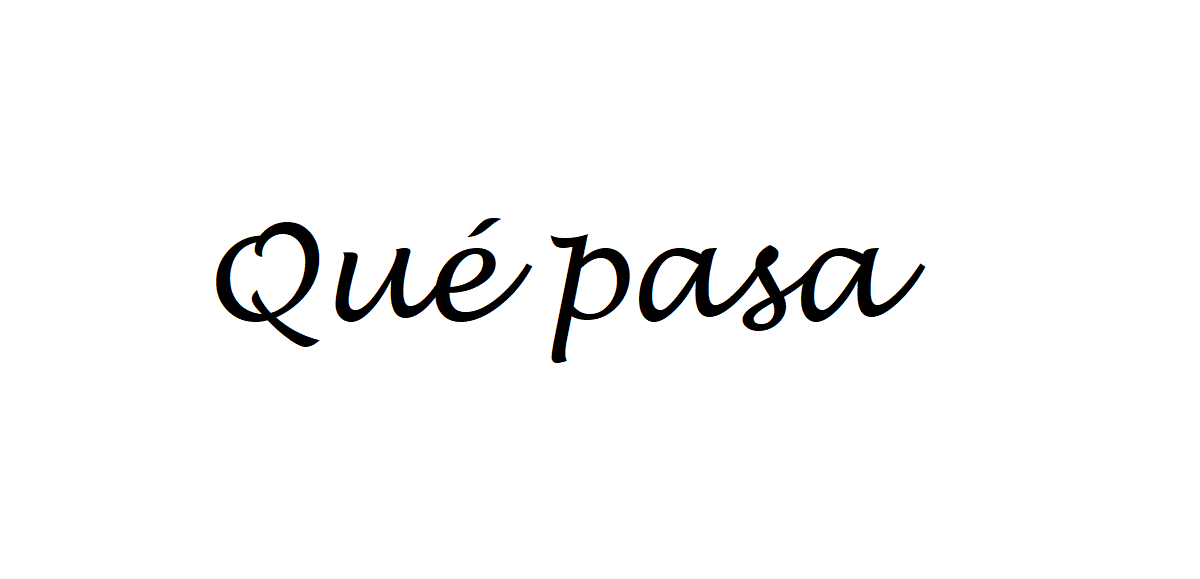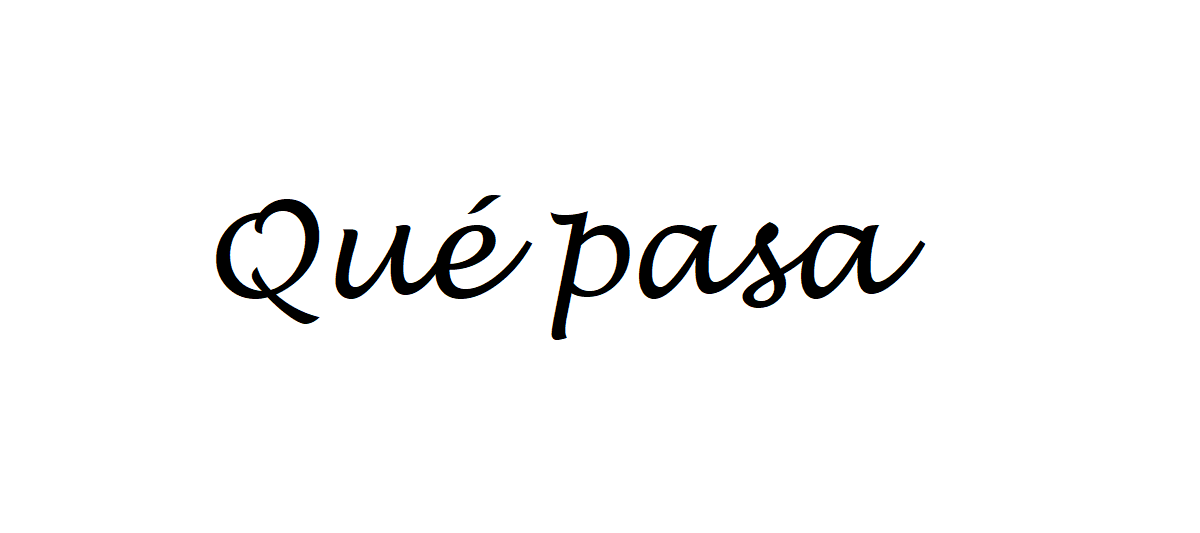Like every place in the world, there are many ways to greet someone or ask how they’re doing. From hola meaning hello or hi to ¿como estas? meaning how’re you doing?, there is also another common phrase used to ask someone what is happening – qué pasa.

Qué pasa – This is probably the most common way of saying what’s up in Spanish. It is often used in a friendly way, or when texting, to ask what is happening, what is going on, or how the person is doing. If you’re with your Spanish speaking friends at home, family, or traveling to a Spanish speaking country, saying this may be a good way to be more conversational.
Furthermore, qué pasa does translate to “what’s happening” in English. It may be considered a casual greeting that has a meaning similar to how are you? or nice meeting you. However, it is important to keep it in mind that this is often considered an informal greeting. It may not be appropriate to say it to someone really older, like your grandma.
Examples of using the the word Good Afternoon in Spanish
Hello, what’s up? – “¿Hola! Qué pasa?”
What’s up, guys? – “¿Qué pasa, chicos?”
What’s up with you this afternoon? – “¿Qué te pasa esta tarde?”
What’s up, how are you doing today? – “¿Qué pasa, cómo estás hoy?”
Whats up? I haven’t seen you in a while! – “¿Qué pasa? ¡No te he visto en un tiempo!”
How are you doing? – Cómo estás?
What’s going on? – Qué sucede?
How is it going? – Cómo va todo?
Situations on when to use the correct meaning of goodnight
Greeting someone in Spanish is an easy and fun way to show your enthusiasm for the language. However, it’s also good to know which phrase you should be using depending on the situation you are in. Here are some of the most common phrases used:
1) ¿Qué pasa? – This is a casual way to ask what’s up or how it’s going. The literal translation is “what happens,” but can be used interchangeably with “what’s up.”
2) ¿Cómo estás? – This phrase means “how are you?” It is more formal than asking ¿qué pasa?, so it would be appropriate when addressing someone older than you or in a professional setting.
3) ¿Qué tal? – This phrase also means “how are you?” and can be used casually among friends and family members. It may also be used when speaking formally with elders or superiors, though not as often as ¿cómo estás?
4) Hola/Buenos días/Buenas tardes/Buenas noches – These greeting terms mean hello, good morning, good afternoon, and good evening respectively. They should all be accompanied by a handshake if possible (or at least a smile from behind your mask). You could follow these greetings up with one of the other phrases mentioned above such as ¿qué tal?, depending on how informal or formal you want to make your greeting sound!
5) Saludos – This term simply means greetings. However it is rarely used alone without an accompanying statement like buenos días or hola amigo. When using saludos, try to remember it’s commonly used with two people present that know each other well enough that they both understand what type of relationship they have.
6) Oye – While this word does not translate directly into English, Spaniards will use this word informally among their friends instead of saying hi first.


 August in Spanish
August in Spanish